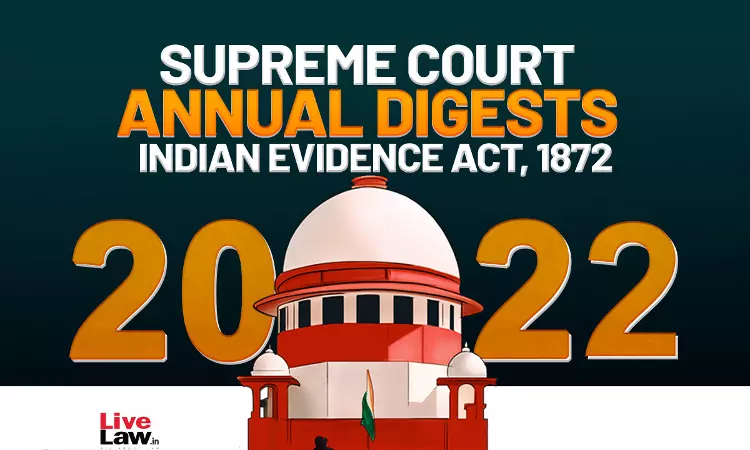Supreme Court Annual Digest 2022- Indian Evidence Act, 1872
LIVELAW NEWS NETWORK
10 Jan 2023 11:40 AM IST

Next Story
10 Jan 2023 11:40 AM IST
Evidence Act, 1872 - A mere non -examination of the witness per se will not vitiate the case of the prosecution. It depends upon the quality and not the quantity of the witnesses and its importance. If the court is satisfied with the explanation given by the prosecution along with the adequacy of the materials sufficient enough to proceed with the trial and convict the accused, there...
